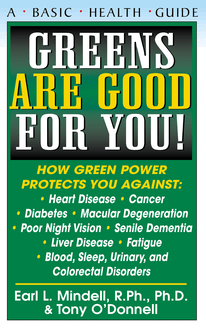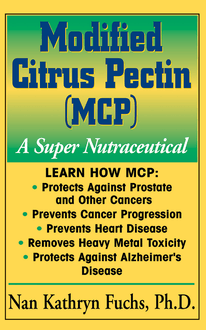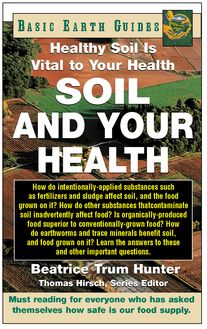What Is Homeopathy? , livre ebook
46
pages
English
Ebooks
2011
Vous pourrez modifier la taille du texte de cet ouvrage
Obtenez un accès à la bibliothèque pour le consulter en ligne En savoir plus
Découvre YouScribe en t'inscrivant gratuitement
Découvre YouScribe en t'inscrivant gratuitement
46
pages
English
Ebooks
2011
Vous pourrez modifier la taille du texte de cet ouvrage
Obtenez un accès à la bibliothèque pour le consulter en ligne En savoir plus
Publié par
Date de parution
15 avril 2011
Nombre de lectures
2
EAN13
9781681629469
Langue
English
Publié par
Date de parution
15 avril 2011
Nombre de lectures
2
EAN13
9781681629469
Langue
English
What Is Homeopathy?
Vinton McCabe
A Basic Health Guide
The information contained in this book is based upon the research and personal and professional experiences of the author. It is not intended as a substitute for consulting with your physician or other healthcare provider. Any attempt to diagnose and treat an illness should be done under the direction of a healthcare professional.
The publisher does not advocate the use of any particular healthcare protocol but believes the information in this book should be available to the public. The publisher and author are not responsible for any adverse effects or consequences resulting from the use of the suggestions, preparations, or procedures discussed in this book. Should the reader have any questions concerning the appropriateness of any procedures or preparation mentioned, the author and the publisher strongly suggest consulting a professional healthcare advisor.
Basic Health Publications, Inc.
www.basichealthpub.com
Library of Congress Cataloging-in-Publication Data
Library of Congress Cataloging-in-Publication Data is available through the Library of Congress.
ISBN 978-1-59120-297-4 (Pbk.)
ISBN 978-1-68162-912-4 (Hardcover)
Copyright 2011 by Vinton McCabe
All rights reserved. No part of this publication may be reproduced, stored in a retrieval system, or transmitted, in any form or by any means, electronic, mechanical, photocopying, recording, or otherwise, without the prior written consent of the copyright owner.
Editor: Karen Anspach
Typesetting/Book design: Gary A. Rosenberg
Cover design: Mike Stromberg
Contents
About the Author
Introduction: What Is Homeopathy?
1. Definitions
2. Homeopathy and Allopathy
3. What Homeopathy Does Not Treat
4. The First Principle of Homeopathic Healing: Similarity
5. The Second Principle of Homeopathic Healing: Simplicity
6. The Third Principle of Homeopathic Healing: Minimum
7. The Goals of Homeopathic Treatment
8. Popular Misconceptions about Homeopathic Treatment
Appendix:
A Concise Resource Guide to Homeopathy
Index
About the Author
Vinton McCabe has studied homeopathy for the past thirty years, and has been a homeopathic educator, activist and author for the past quarter of a century. He is the author of nine books on the subject of health and healing, including his latest book, What is Homeopathy? , a consideration of the Bach Flower Remedies called The Healing Bouquet , and the now-standard text Practical Homeopathy . He is also the author of the Kindle-exclusive line of e-books in the Homeopathy in Thought Action series and is the author/creator of the popular blog Psora Psora Psora .
In addition, McCabe has served on the faculty of the Connecticut Homeopathic Association, the Open Center in Manhattan and the Wainwright House in Rye, New York as a homeopathic educator. He has also taught homeopathy at the Learning Annex, the Omega Institute, the New York Botanical Garden and the Seminar Center in Manhattan. He has appeared nationally as an advocate for homeopathic health care on such programs as The Gary Null Show.
As a print journalist, Vinton McCabe has worked for publications, including New England Monthly, The Stamford Advocate , and The New York Times . He served as Arts Editor both for the Advocate newspapers of Connecticut and Massachusetts and for Corpus Christi Magazine in Texas.
He lives in Litchfield County, Connecticut and, aside from his work in homeopathy, McCabe now works as a book reviewer for the New York Journal of Books.
For more information on homeopathy, please visit my website: www.vintonmccabe.com
I NTRODUCTION
What is Homeopathy?
To understand the word homeopathy, you have to go back two hundred years. To understand the concept of homeopathy, you have to go back two thousand.
But to understand the need for homeopathy in the world today, you only have to open your eyes, both to the world around you and those who populate it-their needs, their chronic aches and pains as well as their acute day-to-day needs-and to yourself. Take a look at yourself in the mirror, a good, long look. Do you like what you see? Are you satisfied with your state of health, or do you think that it could be improved?
In general, I have always had an issue with the term alternative medicine, because I think that in accepting the word alternative , those of us who consider homeopathy to be our primary form of medical treatment agree to allow our beliefs to be defined not by what homeopathy is and what it has to offer, but instead by our culture s primary form of medical treatment: allopathy. As someone who has made his living with words and in the communication of ideas, I can t help but recognize that, in yielding the status quo to allopathic medicine, homeopathy marginalizes itself and forces itself into a niche.
However, the more I watch TV and read newspapers and Internet reports of court cases and clinical trials that prove again and again just how dangerous allopathic drugs can be and how toxic allopathic medicine is in both philosophy and practice, the more I read of drugs like those for the treatment of diabetes that, in treating diabetes cause heart attacks, the more willing I become to embrace the word alternative .
Because homeopathic medicine offers each of us a true alternative to the dangers of traditional allopathic medicine. An alternative that is both effective and safe. And given that allopathic medicine is neither of these, that is a pretty potent promise.
And yet, it is not the purpose of this text to simply damn allopathic medicine. Nor is it my purpose to limit the choice of any consumer when it comes to the selection of an appropriate form of medical treatment. Instead, the purpose of this book is to inform and educate the reader not just about homeopathy, but about medicine in general, and especially to educate on the subject of healing and how it most easily and reliably can be achieved, no matter the illness or its cause.
A Medical Truism, with Apologies to Abraham Lincoln
When you are thinking about any form of medicine, consider this: All medicine can cure some of the people all of the time and all of the people some of the time. But no medicine can cure all the people all of the time .
You need to remember this, because it is true. Any form of medicine will work for any patient sometimes, under conditions that are ideal for that medical modality. For the patient with a stiff neck, for instance, chiropractic medicine can work wonders, where it may not work as well for the patient with heart disease. This is not to say that chiropractic medicine has no value, only that, like everything else, it does not represent a cure-all. Nothing does. Allopathic medicine may work well for a given patient in many instances in his or her life-it is, for instance, very good in medical emergencies-but it may utterly fail under other circumstances. The same may be said about homeopathic medicine or Traditional Chinese Medicine or Ayurvada or anything else.
This is partially true due to the differing skill levels of the practitioners of any form of medicine. The perfectly good allopath trained in family medicine may not have the skill set required for a patient who presents symptoms with which he is unfamiliar. And that patient may then be sent through the full maze of allopathic tests, probes, and specialists, all without result. In the same way, the homeopath who is wonderfully skilled at treating constitutionally may not make the right decision in terms of a remedy when faced with a sudden acute ailment requiring an immediate decision that does not allow the practitioner to make full use of his or her many different Materia Medicas, Repertories, and computer software packages.
But I think that my bastardization of Lincoln s truism goes beyond the practitioners to the medical modalities themselves. I believe that no form of medicine will ever be a cure-all for all patients at all times, no matter how skilled the practitioners of all these various forms of medicine may be. The various modalities of medicine work with the body in different ways, exacting different costs and offering different benefits. Therefore, I think it wise for patients to become wise consumers of all forms of medicine and to know the appropriate use of each-and before advocates of natural medicine close this book, let me hasten to point out that herbal medicine is, by its very nature, allopathic, so let s throw into this discussion the fact that many of these different forms of medicine have good and bad aspects as well. All the forms of medicine mentioned here-and let s add acupuncture, healing hands, and nutritional/naturopathic medicine into the mix-have been shown effective in both clinical trials and in the lives of individual patients over not just decades but over millennia. It is therefore the purpose of this book to throw no babies out with their various tubs of bathwater. I do not seek to inhibit the use of any form of medicine, only to explain the why and how of homeopathy and to give the reader an understanding of the reasons why it belongs, right next to allopathy, at the top of the list of potential treatments that are readily available to all wise consumers of medicine.
C HAPTER 1
Definitions
In beginning a study of homeopathy, we have to first consider the meaning of a few key terms, words that we use often enough that we all assume that we are in agreement about their meaning. And yet it is important that we all know what we are talking about when we use them:
Medicine
All branches of medicine come from the same source materials. All medicine began with herbal and other natural substances. And all forms of medical philosophy are based upon direct experience with the animal, vegetable, or mineral substance used for a medicinal purpose. Substances are considered medicinal for the simple reason that they can create a more-or-less predictable change in







